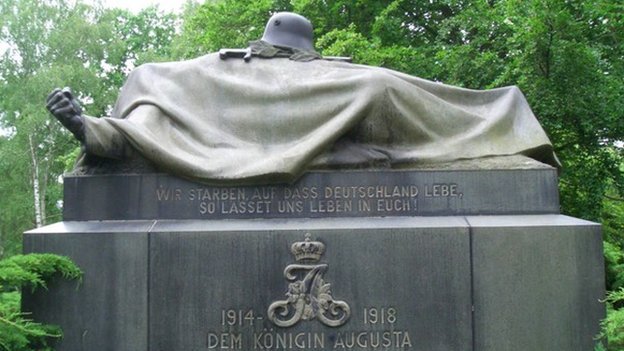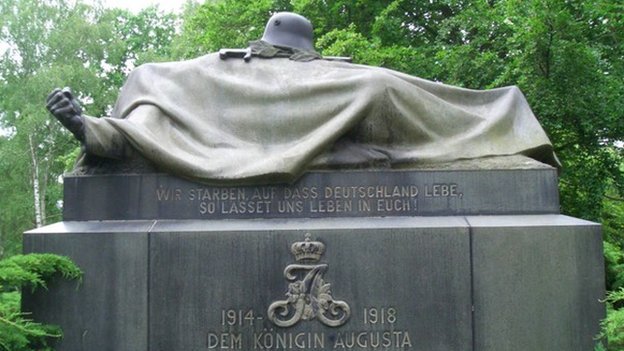During WWI, Germany was one of the most important nations involved. They played a large part in the fighting, and received harsh punishment in the form of the Treaty of Versailles. Today, it appears that modern generations have refused to acknowledge the conflict altogether. The apparent lack of remembrance regarding WWI in Germany may be caused by a number of factors, not the least of which is that there are literally no current survivors of the conflict.
Older nations do not seem to have forgotten the war in quite the same manner. Wales, for instance, has a parade every year. Other nations teach their children through school field trips to famous cemeteries in which the soldiers who fought the Great War are at rest. While Germany may contain similar cemeteries as well as its own memorial structures honoring WWI, they are not regarding in the same way as cemeteries and memorial structures belonging to other nations. Even though the centenary of the war began this year, there has not been as great an increase in memorial events as there has been in other countries.
This lack of remembrance is especially felt in the cemeteries and graveyards dedicated to the war’s fallen soldiers. These are the locations where many would have expected the WWI heroes of Germany to gain the most remembrance. Yet civilians do not visit these sites nearly as often as similar sites are visited in other nations. Even sites dedicated to more famous heroes such as the Red Baron are left to become infested with vines and weeds while few visitors tread upon the grounds.
It has long been believed that the reason for this lack of remembrance cannot be attributed to the Great War itself, but to the war which followed it. The Second World War is a touchy subject in Germany. Since the causes of this war were largely rooted in WWI, most prefer not to bring up either subject. Furthermore, many are not proud of the overall nationalism that began with Kaiser Wilhelm II. What appears to be a lack of remembrance is therefore actually an attempt not to fall prey to the same prideful beliefs that contributed to the conflicts, the BBC News reports.
Some believe Germany has made a great oversight by combining WWI and WWII into the same belief system. The causes of the First World War were more justified in the eyes of many historians, and arose from more than mere nationalistic pride. On top of that, Germany went through a great struggle during WWI, and many believe that they are overlooking some of the factors that led to their unification by overlooking the camaraderie of their citizens during the war. Given how controversial the subject has become within the nation, there might be no change in perception in the near future, but many hold out hope that Germany might increase its commemorations of those who were lost in WWI, a practice which might bring citizens together as a nation.

